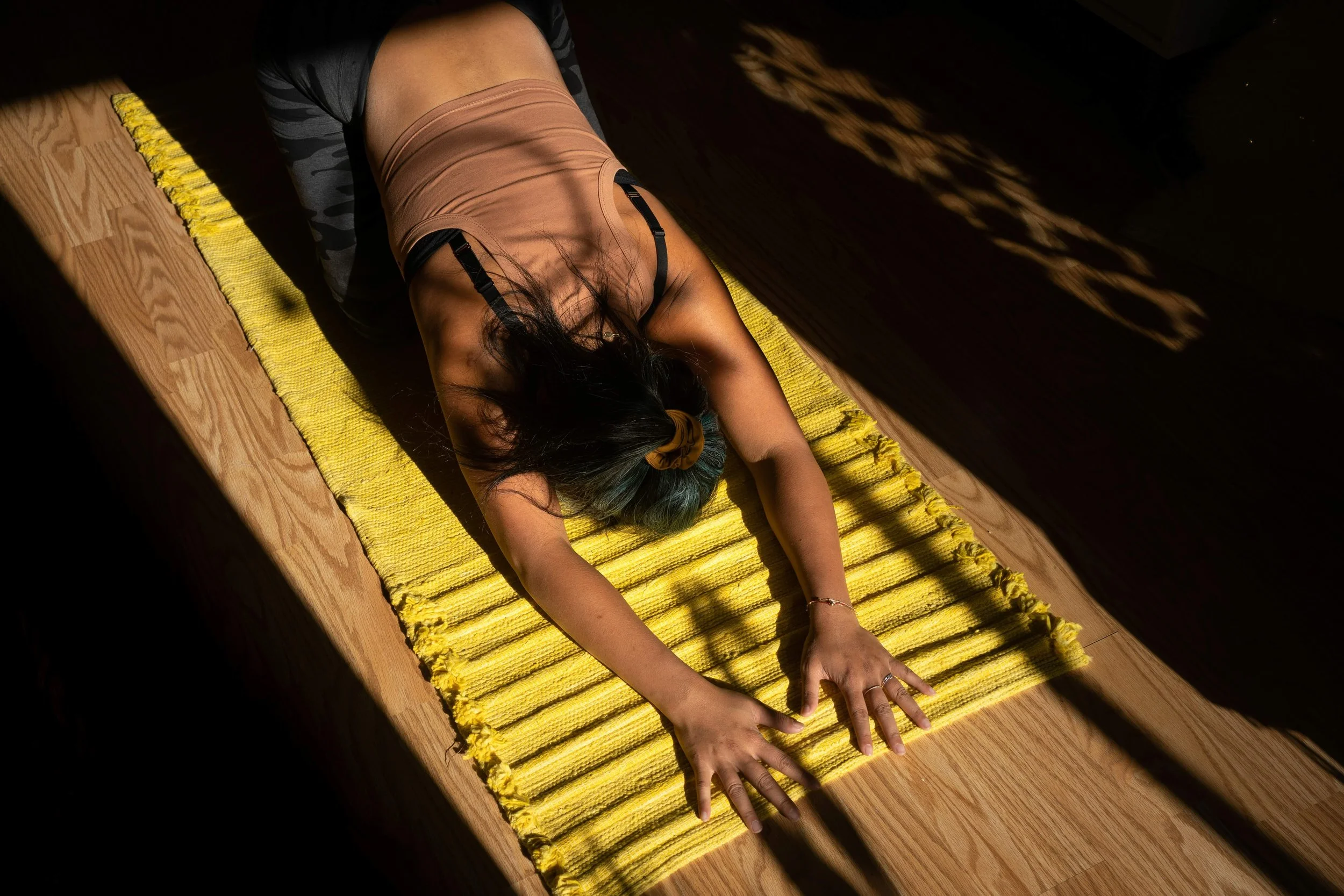Coming Home to Your Body: Yoga and Eating Disorder Recovery
May 26, 2025 | By Hayley O'Brien
This is a repost of our blog originally posted in 2020.
How Yoga Can Both Challenge and Support Eating Disorder Recovery
Clients usually have one of two reactions when I tell them I’m a yoga teacher.
The first is: “Oh my gosh, that’s awesome! Can we do yoga sometime?”
The second is a hesitant: “Oh…” usually followed by a long pause and a palpable wave of anxiety I can feel from across the room.
To be honest, more often than not, it’s the latter. You see, I work with individuals recovering from eating disorders, a group that often struggles to feel safe or connected in their own bodies.
Why Yoga Can Feel Intimidating in Recovery
Many folks with eating disorders have learned to connect with their bodies through self-destructive behaviors like restricting, bingeing, or purging. Alongside these behaviors, there’s often an inner dialogue filled with shame, criticism, and self-hatred. So, when I mention that I offer yoga alongside psychotherapy, fear is a common response. The eating disorder has served a purpose in their lives, often providing a sense of control or safety and the idea of replacing it with something unfamiliar like yoga can feel overwhelming.
What Yoga Offers: Connection, Awareness, and Choice
Yoga is a practice that encourages connection between the mind and body. It uses breath, movement, and meditation to ground us in the present moment. Over time, yoga can help increase awareness of both emotional states and physical sensations.
For example, a client might notice that when they enter a child’s pose, they feel safer and more relaxed- their lower back softens, and their breath deepens. Another person might find the same posture uncomfortable, triggering anxiety instead.
Both responses are valid and the practice becomes about responding to those cues with compassion. That might mean adjusting the posture, breathing more deeply, or choosing a different shape altogether. This kind of self-awareness and flexibility is powerful, especially for people who have historically relied on disordered behaviors to manage their emotions and physical discomfort.
The Role of Readiness and Exposure
Yoga isn’t always easy for clients in recovery. Mindful movement, especially done with care and curiosity is often in direct contrast to how they’ve related to their bodies in the past. For some, they are not yet ready for such an exposure. But for those who are ready, I have found the process to be deeply transformational.
In addition to traditional psychotherapy, yoga provides a tangible element in their treatment. Week to week, they notice progress not just in what they can do, but in what they can feel and sense. When clients are able to make more peace with their bodies on the mat, I’ve seen them make more peace with food at the table as well.
Yoga as a Complement to Therapy, Not a Cure
Yoga is not a cure for an eating disorder. Yoga is more like a companion to traditional therapy. The practice of yoga typically brings up feelings and thoughts that can be meaningful to process in therapy, which is why the two go hand in hand. Yoga invites clients to be present with themselves and can help support their journey in recovery.
I see yoga as a bridge to the self, a bridge home. The more folks cross the bridge, the more familiar and comfortable they typically feel. Over time, I have seen clients begin to understand, accept and appreciate the home they were given. This shift often helps lessen the urge to punish or self-destruct. I feel grateful to have witnessed so many people benefit from this practice.
The Journey Home
For those in recovery, this kind of shift may feel unfamiliar at first but with support from a trained yoga therapist, it can become something steady and meaningful. I’ve seen how even small moments on the mat can open the door for deeper processing in therapy.
It’s okay if you’re not ready. But when you are, the practice will be here waiting for you.
Reach Out
If you’re considering professional support, we’re here to help. Please reach out to schedule a free, no-commitment consultation. There’s no fee and no obligation—just click the button below to get started.
You can also call or text us at 202-656-3681, or email us directly. Give yourself the opportunity for the support you deserve.




